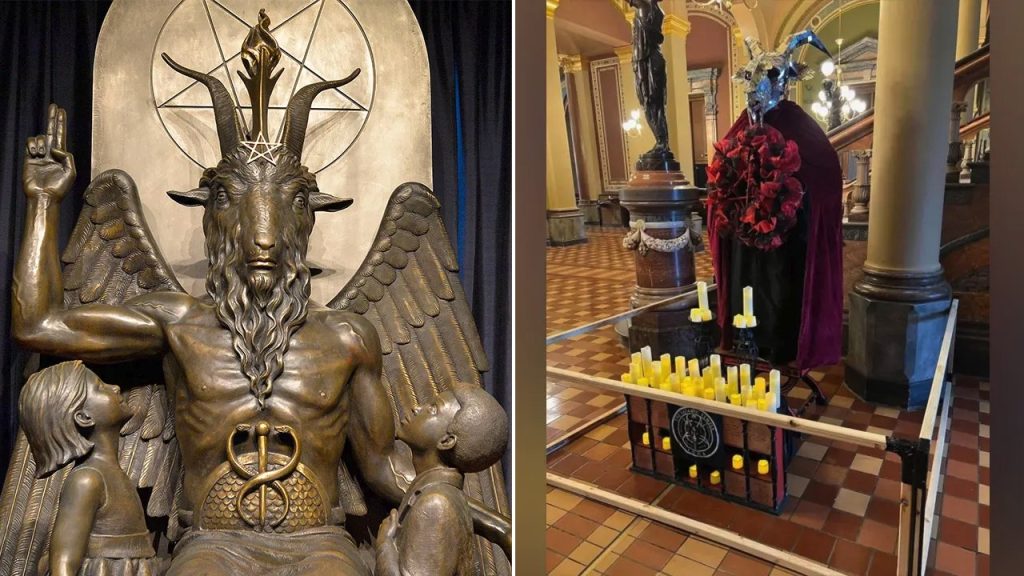A former Republican congressional candidate from Mississippi, Michael Cassidy, pleaded guilty to an aggravated misdemeanor count of third-degree criminal mischief in connection with the vandalism of a statue of the pagan idol Baphomet at the Iowa state capitol. Cassidy admitted to partially dismantling the statue, which was brought to the capitol by the Satanic Temple of Iowa and was destroyed beyond repair. The statue was displayed as part of state rules allowing religious displays during holidays, which sparked outrage from state and national leaders, including Iowa Gov. Kim Reynolds and Florida Gov. Ron DeSantis. Cassidy stated that he acted out of outrage and religious conviction.
Cassidy’s attorney, Sara Pasquale, stated that they had continually contested the hate crime charge and questioned whether Cassidy was being targeted due to his religious beliefs. The state ultimately decided to drop the hate crime charge, and Cassidy agreed to a plea deal that includes a deferred judgment with two years probation, an $855 civil penalty, restitution to be determined, and participation in a victim-offender dialogue with representatives of the Satanic Temple if requested. While the sentencing recommendation is not binding on the court, Pasquale expressed gratitude that Cassidy no longer faces a hate crime charge and hopes that offensive displays will be rejected from state capitol buildings in the future.
The decision to drop the hate crime charge was influenced by several factors, according to Lynn Hicks, spokesperson for the Polk County Attorney’s Office. These factors can include taking accountability for the conduct, cooperation with law enforcement, the availability of evidence, and the defendant’s lack of criminal history. The plea agreement included provisions for restitution to make the victims financially whole and a victim-offender dialogue, giving the victims an opportunity to directly address how Cassidy’s actions affected them. While prosecutors have not disclosed specific reasons for dropping the hate crime charge, Pasquale expressed satisfaction with the outcome and hopes the case will raise awareness of similar situations nationwide.
The vandalism of the Baphomet statue at the Iowa state capitol drew national attention, with political leaders condemning the act of destruction. The statue was displayed under state rules allowing for religious displays during holidays, and its destruction by Cassidy prompted a strong reaction from members of the Satanic Temple of Iowa and other supporters of the statue. The plea deal reached by Cassidy in exchange for the dropping of the hate crime charge reflects a resolution to the case that includes probation, a civil penalty, restitution, and participation in a victim-offender dialogue. The decision to drop the hate crime charge was influenced by various factors, ensuring that Cassidy is held accountable for his actions.
The plea agreement in Michael Cassidy’s case represents a resolution to the charges he faced in connection with the vandalism of the Baphomet statue at the Iowa state capitol. Cassidy’s admission of partially dismantling the statue led to the dropping of the hate crime charge, with prosecutors citing several factors that influenced their decision, including his willingness to take accountability for the conduct. Cassidy’s attorney expressed gratitude that he no longer faced a hate crime charge and emphasized the importance of rejecting offensive displays in public spaces. The case has raised awareness of similar situations that may arise in state capitol buildings across the country, highlighting the need for respectful and reasoned dialogue in addressing religious displays and beliefs.













